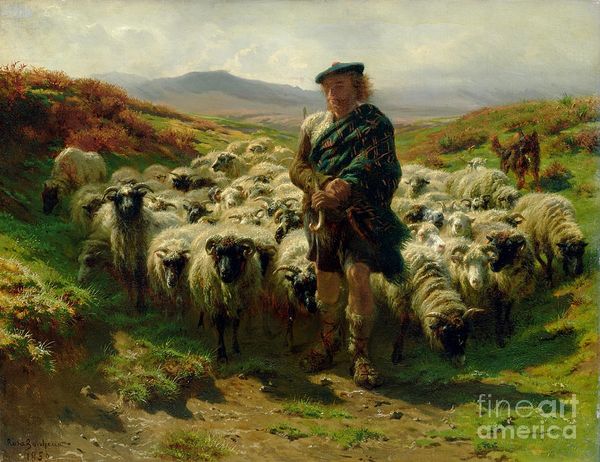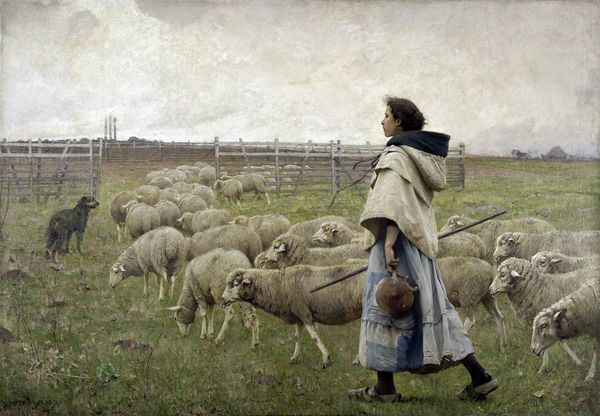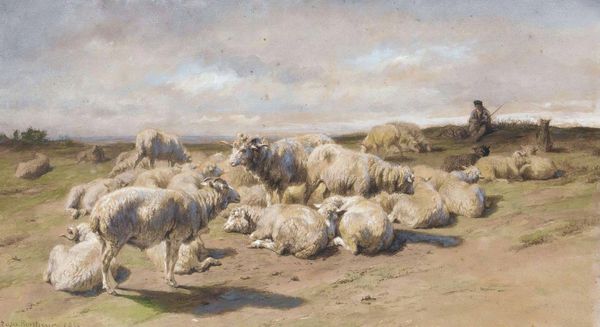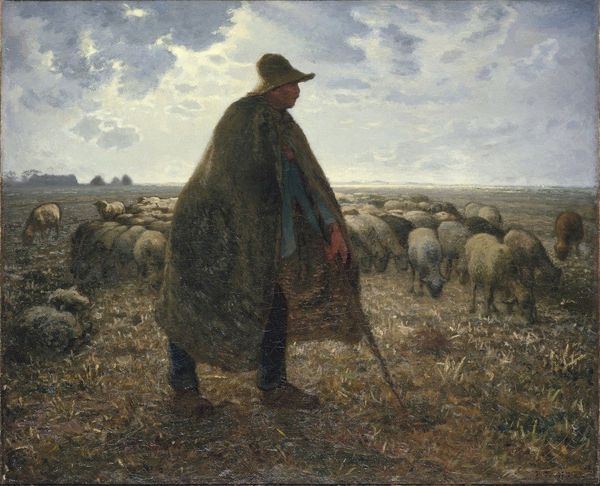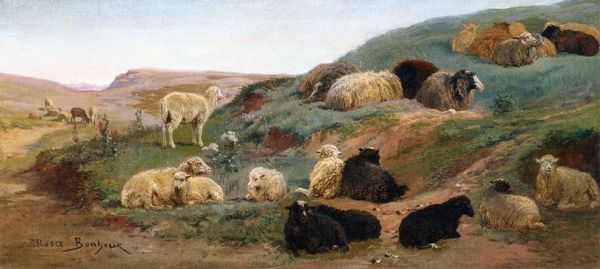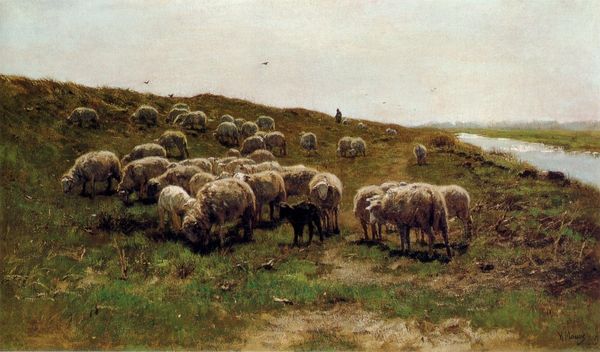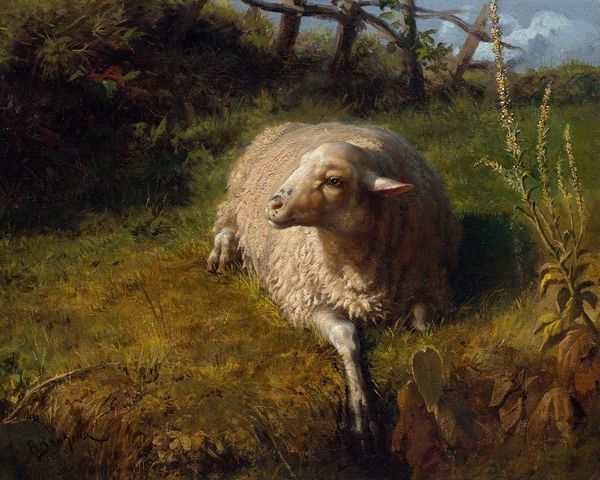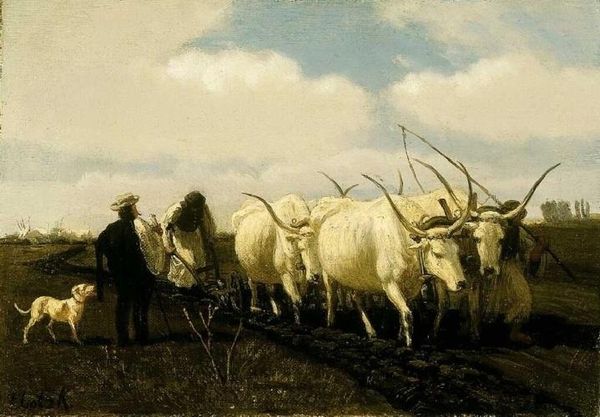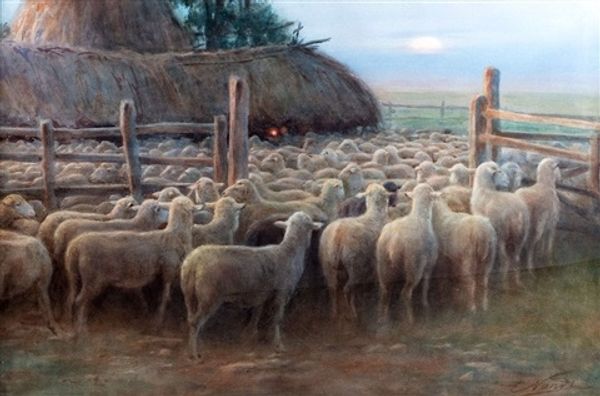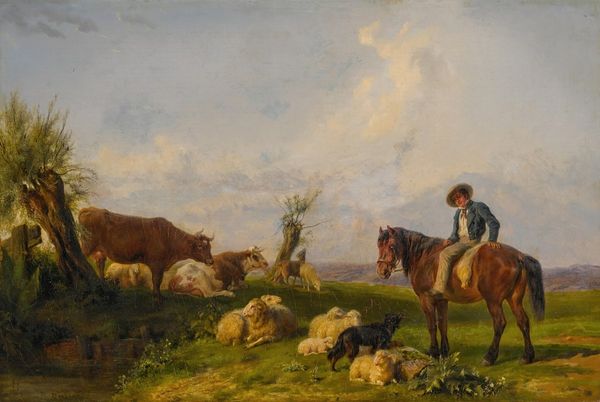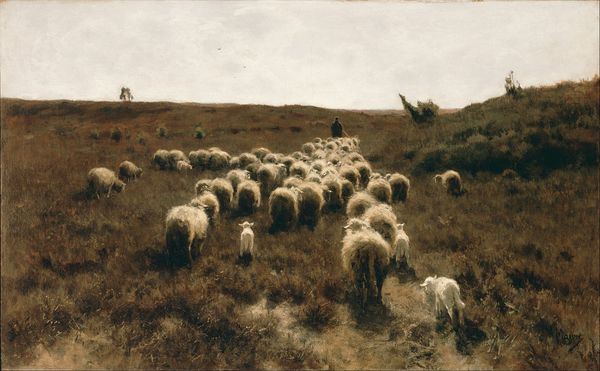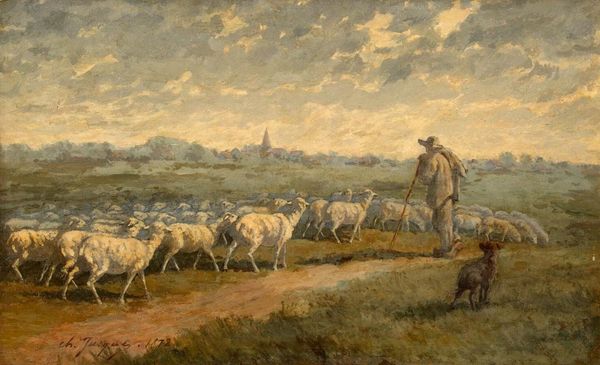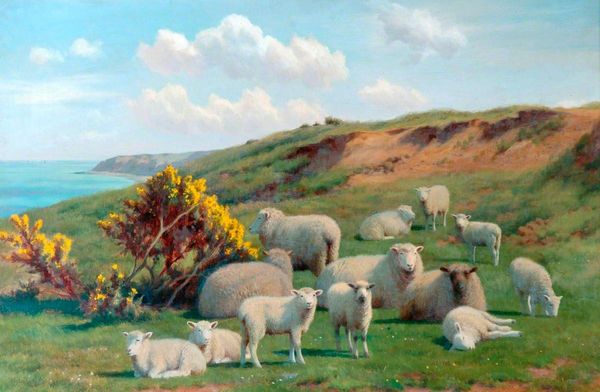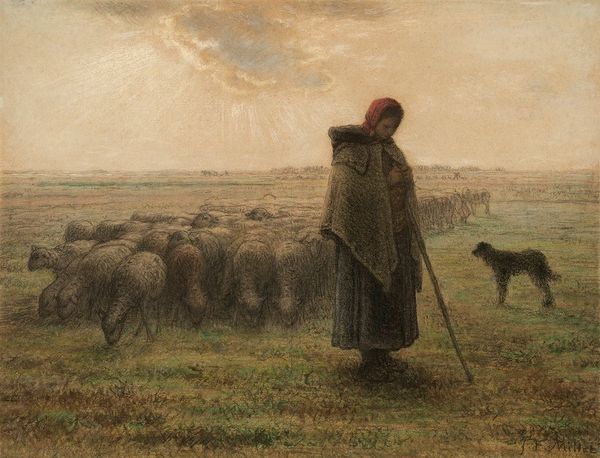
painting, oil-paint
#
portrait
#
painting
#
oil-paint
#
landscape
#
oil painting
#
animal portrait
#
genre-painting
#
realism
Copyright: Public domain
Curator: Rosa Bonheur's "Shepherd of the Pyrenees", an oil painting from 1888, presents a captivating view into rural life. Editor: There’s something so calming about the light and muted color palette—the soft greys and greens really evoke a sense of peacefulness, doesn't it? And the sheep! They almost feel like a collection of rounded, abstract shapes. Curator: Bonheur's choice to depict this everyday scene—a shepherd with his flock in the Pyrenees—speaks volumes about the Realist movement's focus on portraying ordinary life accurately and without idealization. Her paintings gained enormous popularity at the time as European society became more and more industrialized. Rural life represented an escape. Editor: It is certainly effective. Consider the way Bonheur renders the textures of the wool—it's incredibly tactile. She has this real understanding of light and shadow, wouldn’t you agree? There is an almost palpable atmospheric perspective creating depth. Curator: And let’s not forget Bonheur's own life; a woman achieving great success as an artist during a time when it was exceedingly difficult. The painting also has symbolic undertones related to agrarian life that society celebrated as simpler than urban environments. The painting became popular among urban dwellers precisely for this reason. Editor: You are so right; the painting could easily be read through an art historical lens. But consider the shepherd—his calm demeanor amidst the flock adds a subtle human element without overpowering the landscape. It's about balance and harmony, formally. Curator: Exactly. Bonheur wasn't just painting a landscape; she was documenting a social dynamic, albeit romanticizing the shepherd and sheep relationship, to be sure. These artworks reinforce narratives of hard work. Editor: I like how you tie social meaning with the pictorial components. For me it's simply a visually satisfying arrangement of shapes, color, and tone, that draws my eye again and again. Curator: It serves as a powerful reminder of how artists engaged with broader societal trends. Editor: And of their sheer technical brilliance. Curator: A valuable insight. Thank you! Editor: You are welcome! It’s a pleasure as always.
Comments
No comments
Be the first to comment and join the conversation on the ultimate creative platform.
